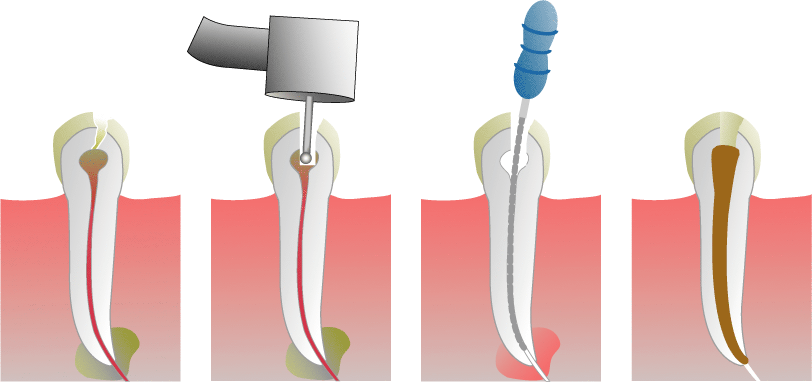

Causes of an infected pulp could include:
- a deep cavity
- repeated dental procedures
- a cracked or broken tooth
- injury to the tooth (even if there’s not a visible crack or chip)
If you continue to care for your teeth and gums your restored tooth could last a lifetime. However, regular checkups are necessary; a tooth without its nerve can still develop cavities or gum disease. Most of the time, a root canal is a relatively simple procedure with little or no discomfort involving one to two hours in our office.
Extractions
Although permanent teeth can last a lifetime, teeth that have become damaged or decayed may need to be removed or extracted. Dr. Patel brings his gentle touch and extensive expertise to this procedure to ensure that your treatment is successful.
Other reasons for extractions may include:
A crowded mouth. Sometimes dentists extract teeth to prepare the mouth for orthodontics. The goal of orthodontics is to properly align the teeth, which may not be possible if your teeth are too big for your mouth. Likewise, if a tooth cannot break through the gum (erupt) because there is not room in the mouth for it, Dr. Patel and Dr. Cox may recommend extraction.
Infection. If tooth decay or damage extends to the pulp — the center of the tooth containing nerves and blood vessels — bacteria in the mouth can enter the pulp, leading to infection. If infection is so severe that antibiotics do not cure it, extraction may be needed to prevent the spread of infection.
Risk of infection. If your immune system is compromised (for example, if you are receiving chemotherapy or are having an organ transplant) even the risk of infection in a particular tooth may be reason to remove the tooth.
Gum disease. If periodontal disease — an infection of the tissues and bones that surround and support the teeth — have caused loosening of the teeth, it may be necessary to extract the tooth or teeth.

